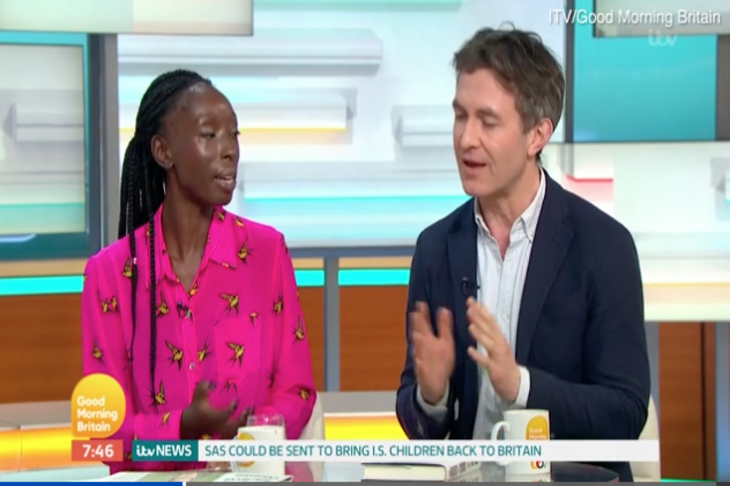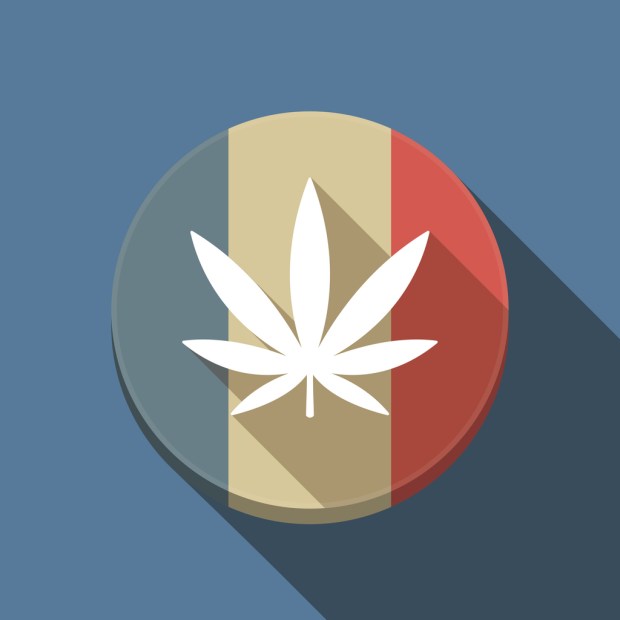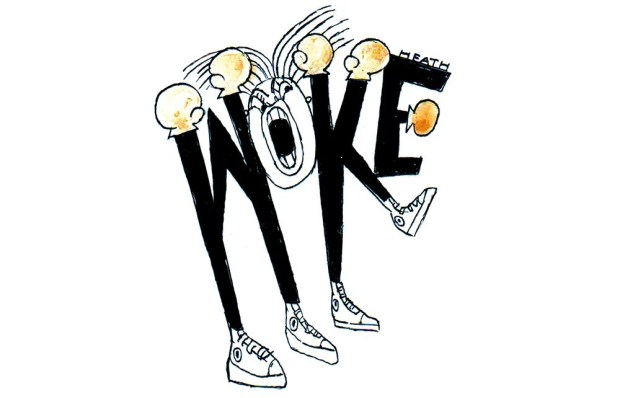Discussions of ‘privilege’ have become one of the themes of this age. In a short space of time, the obsession with the subject has forced its way from the margins of the social sciences right into the centre of all cultural and political debate. Politics and office politics is increasingly consumed by it. One day it is Rory Stewart being asked to account for his privilege by that ghetto-denizen Cathy Newman. Another it is Don Lemon being talked over by a black trans woman at the mass asylum breakout that constituted last week’s Democrats LBGT Town Hall.
Everywhere the privilege discussion is the same. Who has privilege? Who should give it up? Who should have more?
The debate is hampered by the fact that until now it has been assumed in countries like Britain and America that only one form of privilege exists. That it is white, male, elderly, ‘cis’, heteronormative power. Anybody believed to be in possession of one, let alone all, of these ailments is assumed to be a person of power who must therefore acknowledge their privilege and in some way move aside.
Of course as I go to some lengths to expose in my recent book The Madness of Crowds: Gender, Race and Identity, the problem with this theory is not just that it is divisive and false but that it is inherently contradictory. For instance, some studies show that gay men and women are likely to out-earn their heterosexual counterparts during the course of their careers. There are a number of possible reasons for this. But whatever the cause, this must constitute some form of ‘gay advantage’ or ‘gay privilege’? If so, how are we to rectify it? Must some form of taxation be brought in to take some money from the gays and hand it over to those poor benighted straights?
If we are to interpret the whole world and our actions in it primarily through the lens of ‘power’ then surely there are other forms of power and privilege that exist in the world? Forms that almost everybody knows exist but that we pretend do not. Female privilege, for instance. Are there occasions on which it is an advantage to be a woman? That isn’t to say that there mightn’t be situations in which it has been a disadvantage to be a woman. But surely there are times when it comes in handy, whether people admit to this being the case or not.
Perhaps a bigger landmine is to ask the obvious follow-on point. We are told that there are forms of privilege that come with being white. Historically this may be able to be said to be the case. Though again it is a claim filled with contradictions and false-assertions. Were people who spent their days working the land in some far-flung part of these islands beneficiaries of ‘white privilege’? Are their descendants today? It is an amazingly reductive and almost certainly unfair way to view most, let alone all white people. But it throws up a counter-question. If white privilege exists, then does black privilege exist too?
I have been wondering about this in recent times. Again, this is not to say that historically black people have always benefited from being black. But if some white people today have white privilege then do some black people?
I would have said that one of the most obvious but unmentionable facts of our time is that some people do. Because whenever a system tilts a particular way some people with intelligence and savviness will take advantage of that fact. Why would they not? In the last year or so, on a number of occasions, I have walked into a hall or studio with a black colleague and been aware that I am at a distinct disadvantage.
What is that disadvantage? Well, it is slightly like the old saw about the gun on stage in a Chekhov play. Except that in these cases there is a gun onstage but it is able to be picked up, pointed and even fired in only one direction. And that is by the black participant in the discussion at anyone present who is white. The bullet is an accusation of racism – whether it is sincere or not, honest or not, accurate or not.
If an era regards racism as its cardinal sin and white supremacy as a fact then it is inevitable that as well as there being sincere accusations of prejudice there will also be some insincere ones. And that if society is largely unbothered about correcting false accusations then a hugely powerful weapon is put in the hands of any canny person who wishes to wield it.
Earlier this month, I was asked on Good Morning Britain on ITV. The programme is popular, for a mass market and thrives on lively discussion, all supervised by Piers Morgan and Susanna Reid.
I was invited on to discuss various subjects associated with my latest book and it transpired the day before the programme that I was due to be on with a woman called Eunice.
A model from Scotland, Eunice is smart, black and, like a lot of people from Edinburgh, is highly talkative. Indeed the night before going on GMB I watched a couple of videos of Eunice from Question Time and other programmes and realised that she is essentially uninterruptible.
Are the ‘woke police’ a force for good or are they just intolerant of other views?
@DouglasKMurray thinks social justice movements have the tendency to ‘overreach’, however, @olumide_eunice says the word might have been hijacked but the movement holds great importance. #GMB pic.twitter.com/w1NQkS9J7B
— Good Morning Britain (@GMB) September 30, 2019
Anyhow – in the studio the following morning I suppose I did my best. I think it’s important to be polite, and especially not to drag television discussion down still further. We had a moderately fruitful discussion.
But here is the thing, there is absolutely no doubt in my mind that during the discussion Eunice benefited from something like black privilege.
Whenever I attempted to speak I found Eunice speaking. When questions were directed at me Eunice picked them up. She seemed to have developed some circular breathing technique which allowed her to keep talking, on a range of subjects, without any natural break that would have allowed a fellow guest to jump in.
When Piers Morgan at one point tried to redress the times allotted to the guests and asked if he could direct a question for me to answer I thought there was going to be a sweet moment of interchange. But Eunice decided to announce, erroneously, that she felt that she had already had to listen to me a fair amount and that she in fact that had been hard done-by in terms of time-allocation.
At this point Eunice decided to fire the inevitable gun by raising the fact that she was the only black person there and that since Susanna, Piers and I are all white this meant that she should speak more. I must say that I don’t think that Piers, Susanna and I could have spoken as a team if you ordered us to. But it was very clear what weapon Eunice had just brought to the table. She had brought the race weapon, and at that moment when most people would say ‘Come on, you’ve had more than enough time’ that was a threat to turn things nasty. Nobody wanted it and so everybody backed off.
I should stress that I am not bitter or regretful about any of this. It seems to me that Eunice produced a situation which there was simply no decent way out of. Other than to try to continue to be polite and accept that the air time was going to be soundly taken up by another person.
But here is the thing, I can’t see that there is any way to present the situation in that studio as anything other than Eunice enjoying something like a black advantage. To interrupt her or correct her, let alone talk over her would have immediately brought forth an accusation of racism.
As I say, this is only one TV discussion, but it is reflective of a number of similar encounters I have had over recent years. And it makes me wonder once again about those people who are keen to push the ‘privilege’ and ‘advantage’ claims. Which is do they not cut all ways? And might there not be an increasing number of occasions in our society that the advantages increasingly lie (for women, gays, ethnic minorities and more) in places where people have become most loathe to notice them?
Got something to add? Join the discussion and comment below.
Get 10 issues for just $10
Subscribe to The Spectator Australia today for the next 10 magazine issues, plus full online access, for just $10.





















Comments
Don't miss out
Join the conversation with other Spectator Australia readers. Subscribe to leave a comment.
SUBSCRIBEAlready a subscriber? Log in